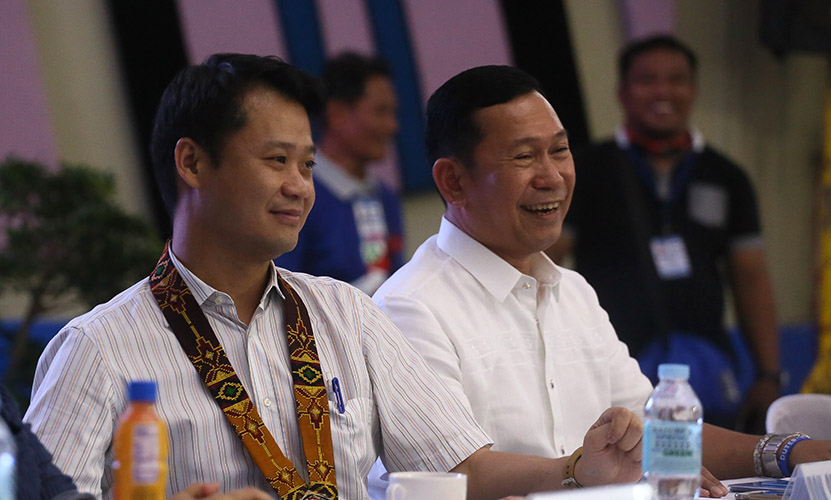
Senator Win Gatchalian wants to make funding available for electric cooperatives nationwide to make them more competent in disaster response and mitigation and prevent protracted power interruptions in areas hit by natural calamities.
To achieve this, Gatchalian has sponsored on the Senate floor the proposed Electric Cooperatives Emergency and Resiliency Fund Act of 2017 (Senate Bill No. 1461) which seeks to allocate P750 million to the National Electrification Administration (NEA) as seed money for disaster management of electric cooperatives.
“The plight of disaster survivors, who are forced to suffer in the dark for weeks or even months after disaster strikes, has been neglected for far too long. Upon passage of this measure, we can be sure that when calamity strikes the next time around, the lights will stay on for good,” Gatchalian, who is the chairman of the Senate Committee on Energy, said in his sponsorship speech.
Gatchalian bewailed that despite the 2016 World Risk Report ranking the Philippines as the third most at-risk country in the face of natural disasters, government has not been able to improve its disaster response programs due to the lack of public funding.
“This lack of disaster response funding puts electric cooperatives in a tough spot…this is a crucial problem affecting the ability of electric cooperatives to turn the power back on in a speedy and efficient manner after a storm hits. Prolonged power outages in areas already devastated by a natural calamity make the situation even worse,” he pointed out.
Gatchalian said the proposed P750 million, which will be administered by the NEA, will be made accessible to electric cooperatives for their electricity restoration and infrastructure rehabilitation efforts. Of the amount, P150 million (20%) will be for disaster prevention, disaster preparedness and disaster mitigation measures; while P600 million (80%) will be used to finance restoration and rehabilitation of damaged infrastructure after a calamity.
To access the funds, electric cooperatives are first required to prepare and submit to the NEA a Vulnerability Risk Assessment (in which critical assets vis-à-vis top rated threats from natural disasters are identified, quantified and evaluated by electric cooperatives), a Resiliency Compliance Plan (where projects and programs to protect and reduce the vulnerability of identified critical assets are laid out), and an Emergency Response Plan (in which structures and procedure for the electric cooperative to restore its system in a safe and timely manner are indicated).
“Through the creation of these plans, it is our hope to cultivate a culture of disaster preparedness in our electric cooperatives,” Gatchalian said.
Aside from managing the fund, the NEA is also tasked to prepare a National Electric Cooperatives Emergency and Resiliency Plan, which shall be integrated in the National Disaster Risk Reduction and Management Plan under Republic Act No. 10121, or the Philippine Disaster Risk Reduction and Management Act of 2010.
“We should equip electric cooperatives with timely resources to quickly turn the lights back on after a storm, earthquake, or any other fortuitous event that ravages its coverage areas,” Gatchalian stressed.


